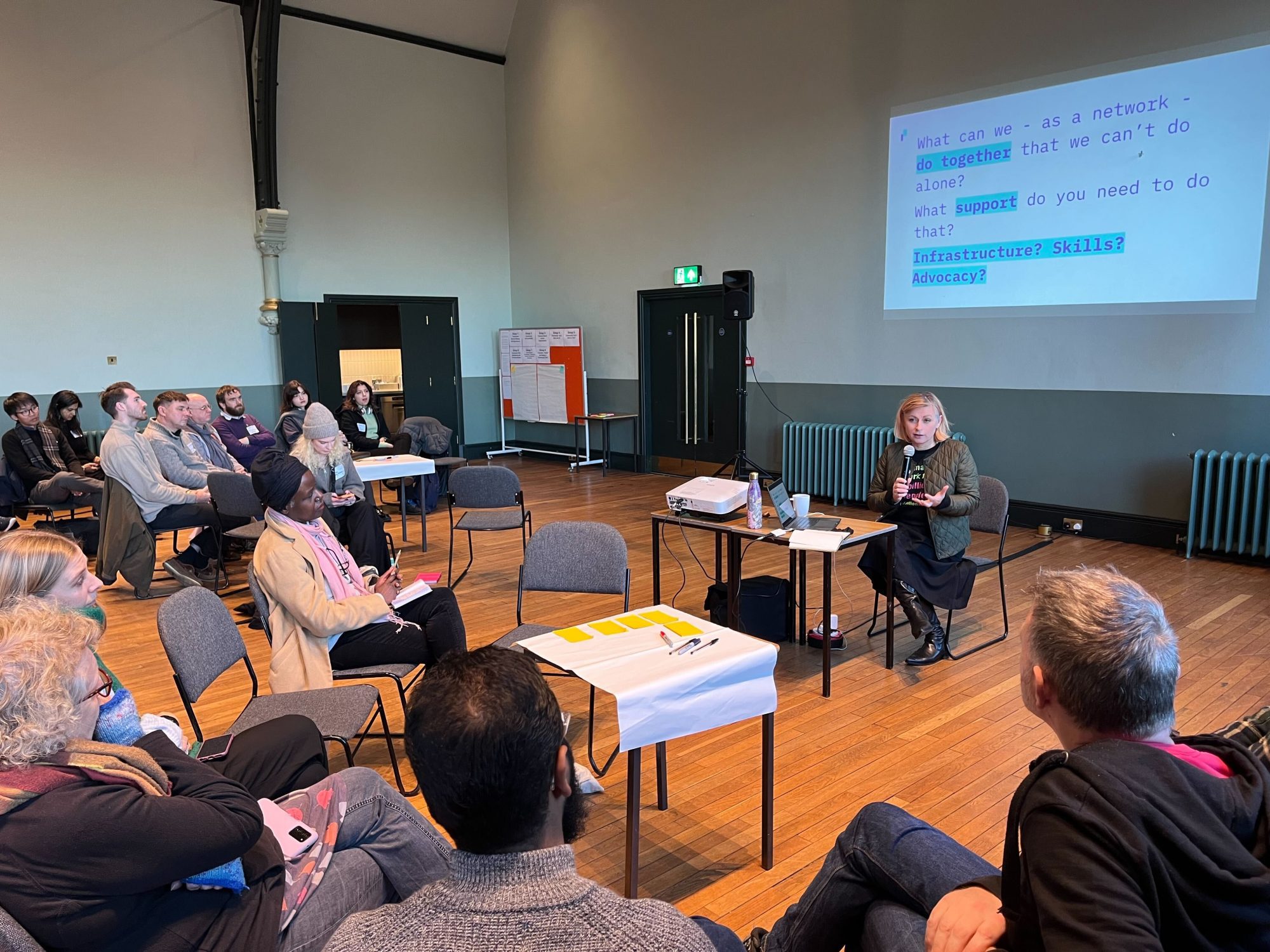
Konstantina Mirtzani
Project Manager, Renaisi
Community businesses play a crucial role in fostering local resilience, driving economic development, and empowering people in their communities. However, the key to ensuring their sustainability and success lies in the way they are supported.
By placing decision-making power in the hands of the businesses themselves, the Powering Up programme not only improved the relevance and impact of support but also fostered a collaborative, inclusive environment where community businesses could thrive. Let’s dive into some of the key insights and lessons from this ground-breaking initiative.
Distributed power and autonomy
One of the most notable features of the Powering Up programme was the autonomy given to community businesses in how they utilised their funding. Unlike traditional funding models that often impose rigid frameworks, this programme trusted businesses to make decisions that were in line with their unique needs and priorities. Whether it was funding for technical sustainability improvements, or professional development for staff, businesses were empowered to choose their own path.
This shift from a top-down approach to one that is more flexible and business-led allowed for tailored support that was not only more relevant but also more effective. When businesses have the freedom to make decisions, they are better equipped to meet their goals and address the challenges they face in a meaningful way.
Sociocracy for shared decision-making
At the heart of the Powering Up programme was the implementation of sociocratic principles for decision-making. Sociocracy is a governance system that emphasises equality, transparency, and consent, and it was used to ensure that all stakeholders had an equal voice in decisions. While sociocratic decision-making can sometimes slow down the process due to the need for consensus, this approach created an environment where every perspective was valued. The result? Better-informed decisions and a deeper sense of ownership and collaboration among all involved. The power of collective wisdom was truly evident in the process, and the inclusivity it fostered led to stronger, more effective solutions.
Flexibility and adaptation
The Powering Up programme also excelled in its ability to adapt to changing circumstances. Flexibility was built into the programme from the start, ensuring that when new challenges arose, the response could be just as agile. Fortnightly meetings created an ongoing feedback loop where Connectors and Leads could reflect on progress, share challenges, and brainstorm solutions together. This iterative process of co-creation allowed the programme to continuously improve, ensuring that it remained responsive to the evolving needs of the businesses. Flexibility wasn’t just about reacting to problems—it was about proactively refining the programme to better meet the needs of the businesses it supported.
Empowering community businesses through co-design
Perhaps the most powerful lesson from the Powering Up programme is the importance of co-design. Instead of imposing solutions from the top down, the programme actively involved community businesses in the creation of their support plans from the very beginning. This co-design approach ensured that the support provided was relevant to the specific needs of each business, rather than a one-size-fits-all solution. More importantly, it fostered a sense of ownership and empowerment among the businesses, as they were not just recipients of support, but active participants in shaping it. This not only made the support more impactful but also deepened the connection between the programme and the community businesses it sought to help.
The impact of devolving power
Ultimately, the Powering Up programme demonstrated that when power is decentralized and placed in the hands of those who know their communities best — in this case, the community businesses themselves — better outcomes follow. By trusting businesses to define their own goals, solutions, and outcomes, the programme created an environment where businesses could thrive. The result was more efficient, effective support, directly aligned with the needs of the businesses and their communities. The success of the programme underscores a fundamental truth: when power is shared and trust is placed in local organizations, the results can be transformative.
Trust, empowerment and flexibility
By giving community businesses the autonomy to define their own goals and supporting them in co-designing their solutions, the programme not only helped them grow but also strengthened the relationships within the broader community. For those looking to support community businesses, the key takeaway is: trust, empowerment, and flexibility are essential ingredients for success.
When businesses are trusted to make decisions based on their own unique needs, they can achieve greater impact and drive positive change in their communities. The Powering Up programme is proof that when we empower communities, the impact is stronger.



